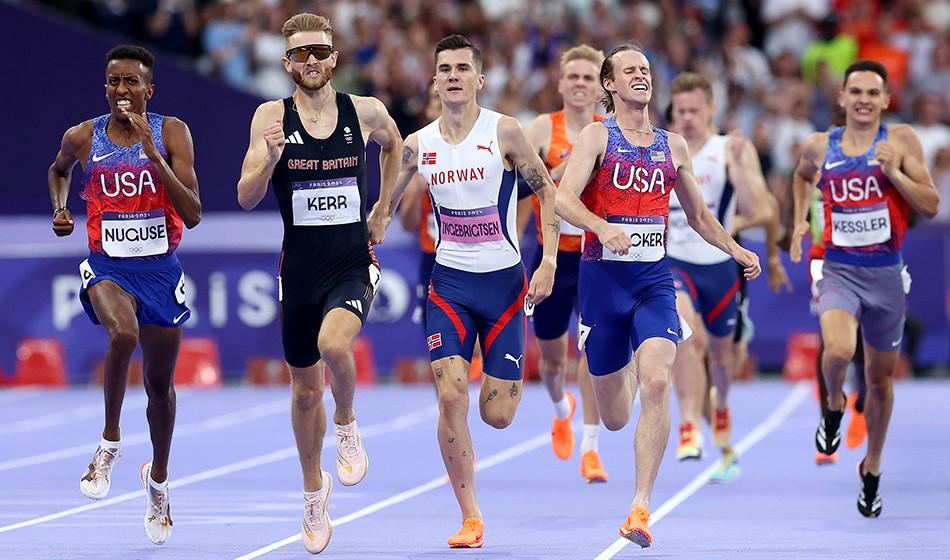In the fast-paced world of athletics, fans and aspiring athletes alike seek clarity on the sport’s most pressing topics. WorldAthletics.org, the official website of the global governing body for track and field, has compiled the top 10 most-asked questions that reveal what enthusiasts are eager to understand about rules, records, and athlete performance. This curated list offers a timely insight into the curiosities driving conversations in the athletics community, shedding light on everything from qualification standards to doping regulations. Here’s a closer look at the questions capturing the attention of the sport’s passionate followers worldwide.
Most Asked Questions Reveal Key Challenges in Modern Athletics
In today’s rapidly evolving landscape of athletics, the questions posed by fans and professionals alike shine a spotlight on the sport’s most pressing hurdles. From concerns about fair play and doping regulations to the impact of advanced technology on performance metrics, these inquiries highlight the delicate balance between innovation and tradition. Athletes and coaches increasingly seek clarity on training methodologies, injury prevention, and mental resilience, reflecting a growing awareness that success on the track or field is as much about preparation off it as natural ability.
Equally prominent are questions regarding inclusivity and equality, with a clear demand for transparency on eligibility criteria, especially in gender-diverse competitions. The frequently asked questions also reveal logistical challenges-such as global event scheduling and adapting to climate variations-that affect athlete performance and spectator experience alike. Below is a succinct overview of the primary topics dominating contemporary athletics discourse:
| Key Challenge | Common Questions |
|---|---|
| Doping & Fair Play | How are doping tests conducted? What substances are banned? |
| Technology & Performance | Do smart shoes give unfair advantage? How reliable are timing systems? |
| Injury Prevention | What are best recovery practices? How do athletes manage chronic injuries? |
| Gender & Inclusion | What rules govern transgender participation? How is fairness maintained? |
| Event Logistics | How are event dates chosen? What accommodations exist for extreme weather? |
Expert Insights Address Training Techniques and Performance Optimization
Elite coaches and seasoned athletes emphasize the critical balance between tailored training regimens and data-driven performance strategies. Customization remains key, as no two athletes respond identically to the same workload. Incorporating cross-disciplinary methods-such as biomechanics analysis, nutrition optimization, and mental conditioning-can accelerate progress and reduce injury risks. Modern training frameworks often revolve around periodization, where phases of built intensity alternate with recovery to peak precisely during crucial competitions.
Experts also highlight the importance of real-time feedback tools such as wearable technology and video motion capture to refine technique and monitor fatigue levels. The following table outlines common focal points that optimize training effectiveness across different track and field disciplines:
| Discipline | Key Training Focus | Performance Indicator |
|---|---|---|
| Sprinting | Explosive power & stride mechanics | Reaction time & stride frequency |
| Middle Distance | Aerobic capacity & pacing strategy | VO2 max & lactate threshold |
| Throwing | Strength & release mechanics | Release velocity & angle |
| Jumping | Takeoff technique & leg power | Height/distance & approach speed |
In summary, integration of modern scientific insights with traditional expertise crafts a robust foundation for optimizing athletic performance. This multidisciplinary approach continues to evolve, driven by ongoing research and innovation in the sport’s technical landscape.
Practical Recommendations for Athletes and Coaches to Improve Results
Consistency and smart training are the cornerstones of athletic progress. Experts emphasize tailoring workouts to individual strengths and weaknesses, rather than relying solely on generic plans. This means incorporating diverse drills that enhance technique, speed, and endurance while strategically scheduling rest periods to avoid overtraining. Athletes and coaches are also encouraged to leverage video analysis and biometric data to spot inefficiencies early and fine-tune performance strategies efficiently.
Successful athletes share some universal habits worth adopting:
- Goal-setting: Clear, measurable objectives cultivate motivation and focus.
- Nutritional discipline: Eating to fuel recovery and peak performance is non-negotiable.
- Mental preparedness: Visualization and mindfulness techniques help manage competition stress.
- Recovery protocols: Restorative practices such as sleep optimization and active recovery accelerate rebound.
| Focus Area | Recommended Action | Expected Benefit |
|---|---|---|
| Strength Training | Targeted resistance exercises twice a week | Increased power output |
| Technique Improvement | Weekly video review sessions | Enhanced form and reduced injury risk |
| Mental Skills | Daily visualization routines | Improved focus under pressure |
Closing Remarks
As the world of athletics continues to captivate fans and aspiring athletes alike, the questions discussed here underline a collective curiosity about the sport’s intricacies, rules, and remarkable feats. For those eager to delve deeper, worldathletics.org remains a definitive resource, providing authoritative answers and updates straight from the heart of the global athletics community. Staying informed not only enhances appreciation of the sport but also connects fans to the pulse of athletic excellence worldwide.

